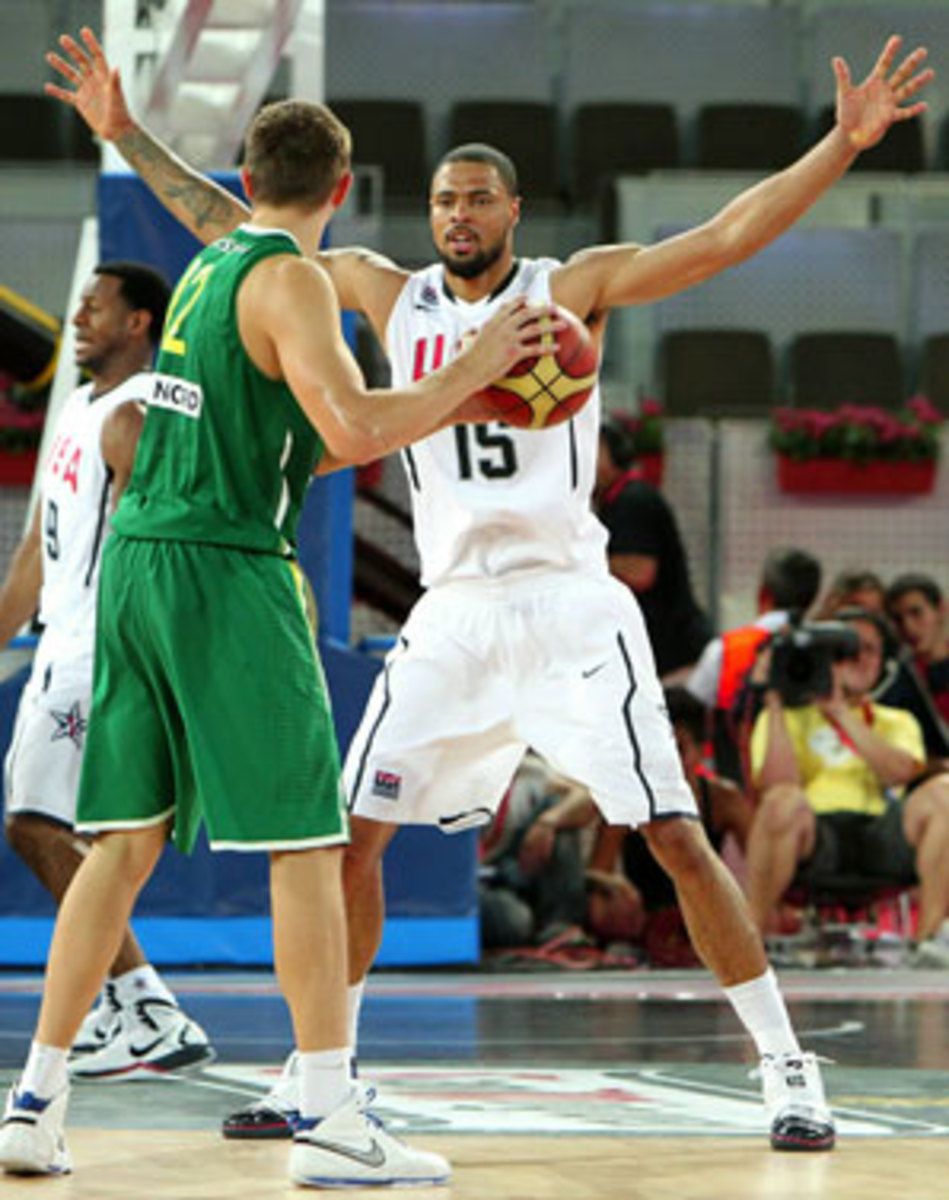Q&A with Mavs center Chandler
Tyson Chandler was supposed to usher in the post-Michael Jordan era in Chicago when he entered the league in 2001. But now, nine seasons and four teams later, the 7-foot-1 defensive-oriented big man has moved on to Dallas, which acquired him from Charlotte last month. As he prepared for the season by joining Team USA in its quest for a FIBA World Championship gold medal, Chandler spoke with SI.com about his career and what his future may hold.
SI.com: This summer you were traded to the Mavericks, the fourth team in your career. How do you adapt to so many moves?
Chandler: I appreciate every team that wants me and I take on every challenge. When I was in Chicago, the challenge was to make them a respectable franchise again after Jordan left. When I went to New Orleans, it was the same thing: It was a franchise that was laughed at. We ended up having the second-best record in the West and almost making it to the Western Conference finals. Then I went to Charlotte, and that was another team that was laughed at and we made the playoffs. So now in Dallas, I'm in a situation with a franchise that has had success and won. My hope is to take it to another level and to get this team back to the Finals.
SI.com: What kind of feeling do you have after a team trades you?
Chandler: Obviously, any added motivation always comes in handy, so whenever I play against those teams I have a little more energy. It pumps things up during the year. But I view it as business.
SI.com: Does loyalty have any place in the game?
Chandler: When a player goes out there and gives you his all, approaches the game with respect and does well for the franchise, there should be some loyalty there. A lot of times, players and organizations will think, He's not giving us this, he's not giving us that. They look at the negatives instead of all the positives a player has given. And a lot of times they'll lose the player, lose the backbone, and they don't understand why the organization goes down. It's the same thing with players: A player will leave an organization and go to another one, thinking the grass is greener, and sometimes it's not.
SI.com: How green does the grass in Dallas look now?
Chandler: Coach [Rick] Carlisle and I have talked about having a meeting about expectations and how I can go out and accomplish and what they want me to bring to the table. I kind of think they know what they're getting. Still, there are some things I've worked on throughout the summer that I feel I can bring to the table that I haven't showed in the last couple of years. It's something I'm looking forward to.
SI.com: Like what?
Chandler: I've been working on my conditioning and my mid-range jump shot and my free-throw shooting. That, and I've been trying to get stronger so I can finish at the basket better. I finish every day of the summer now with 300-400 shots after I've worked out for an hour and a half.
SI.com: You entered the league as a player who could excel at both ends of the floor. Is it frustrating to be known primarily as a defensive presence?
Chandler: People who understand basketball definitely appreciate what I bring to the table. Scorers are always going to be glamorized, but if you have respect for the game, you respect what Dennis Rodman brought to the Bulls, you respect what Ben Wallace brought to the Pistons and everybody respects what Bill Russell did. That's my ultimate goal: to be half of what he was as a player.
SI.com: Has it been hard to give up part of your game?
Chandler: Where I've been placed, a lot of times it has been guard-oriented and a lot of scoring has come from other places. I feel like I have to fill a role that is void. But in different situations, I bring different things to the table. I've always kind of been that way, to be honest. I scored because there wasn't much scoring around me. And in cases where I've been on different NBA teams when players have gone down, my numbers have gone up. I kind of adapt.
SI.com: What's the secret to playing defense?
Chandler: There are some things you can learn as far as possession, timing, understanding personnel, positioning. And there are little sneaky tricks of the trade. But the athleticism, speed and quickness that you need, you can't teach that. It's something you're naturally blessed with; either you have the movement and the understanding, or you don't.
SI.com: Even before meeting with your new Mavericks teammates, you've spent the summer with the U.S. national team. What impact has that had on your preparation for the season?
Chandler: It helps big time. If you look back at the guys who have played on the USA team, they've gone on to have great years. First, you get incredible coaching. Second, you can't play against better players in the summer. It allows you to transition from a high level right into the season.






